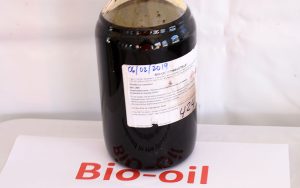ARENA launches sustainable aviation fuel funding round
A $30 million funding initiative aims to help Australia understand how it could achieve big cuts in aviation industry emissions and become a significant global supplier of sustainable aviation fuel.

Australians are among the world’s most prolific users of aviation.
That won’t come as a shock to anyone heading overseas on a long-haul flight or crossing our island continent on a domestic flight.
On a per capita basis, we come only second to the United States for annual emissions from domestic flights. Add in international flights and Australia ranks fifth in the world.
It all adds up. Aviation is responsible for around 1 per cent of Australia’s total annual emissions.
But because of Australia’s global location and large geographic size, aviation is often the only viable option for freight and passenger transport.
So, cutting the number of air kilometres travelled is not a realistic option. Neither, at present, is replacing or retrofitting entire fleets with alternatives to jet or combustion engines. And while battery electric and hydrogen fuel cell planes are already under development, large, commercial planes are still some years away.
That means, if we’re going to significantly reduce aviation emissions, we need to look at alternative fuels. More specifically, lower emissions fuels, commonly known as sustainable aviation fuels (SAF), compatible as drop-in replacements with existing aircraft.

ARENA’s 2021 Bioenergy Roadmap found SAF produced from renewable biomass could provide up to 19 per cent of Australia’s aviation fuel requirements by 2030.
ARENA has in the past supported projects transforming wastewater and agricultural waste into biofuels. Earlier this year, biomass-to-energy company Renergi completed installation of its demonstration pyrolysis plant in Western Australia. The plant converts hard agricultural waste into biochar, wood vinegar and bio-oil, which could potentially be refined into sustainable aviation fuel.
What is the Sustainable Aviation Fuels Funding Initiative?
From July 2023, ARENA is seeking proposals that support commercial or pre-commercial SAF production.
The Sustainable Aviation Fuels Funding Initiative aims to support the development of a SAF industry with production from renewable feedstocks in Australia.
The initiative will provide up to $30 million support for engineering feasibility and project development activities, or funding for pilot-scale and pre-commercial demonstrations.
ARENA will also seek proposals with novel and scalable approaches across the supply chain. This could include innovation in feedstock supply such as aggregation or business models to enable domestic SAF production.
However, proposals must demonstrate an eligible renewable feedstock and production pathway. Power to Liquids (PtL) or E-fuels production pathways are not supported under this initiative.
Grant funding applications, via a two-stage process should be within the $1 million to $30 million range.
What’s in it for Australia?
In 2019, before COVID-19 restrictions curtailed air travel, total global consumption of aviation fuel reached 363 billion litres.
Not surprisingly, that created a lot of CO2 emissions –- 2.5 per cent of the global total – and clocked up a fuel bill of $US188 billion. In 2023, that figure is expected to reach $US215 billion.
But, while, there is increasing focus on producing SAF to tackle the problem, the industry is still in its infancy.
Australia certainly has the potential to be a domestic and international SAF supplier. As a world leader in agriculture, Australia could unlock significant renewable feedstock resources. The Bioenergy Roadmap outlined how a local bioenergy industry could contribute about $10 billion in extra GDP by 2030 and result in an additional 26,000 new jobs.
ARENA CEO Darren Miller said the funding initiative is about utilising Australia’s natural advantages to reduce emissions and make the most of the economic opportunities on offer.
“With abundant agriculture, waste and residue resources, Australia has the potential to support a thriving domestic biofuel industry.
Applications for the SAF initiative are open now, with expressions of interest due by 1 November 2023.
LIKE THIS STORY? SIGN UP TO OUR NEWSLETTER

ARENA